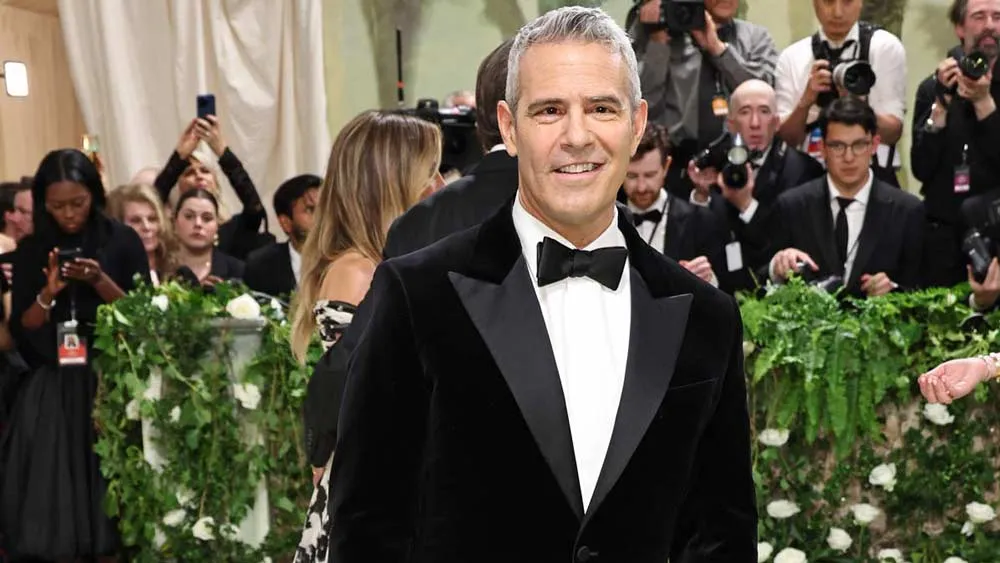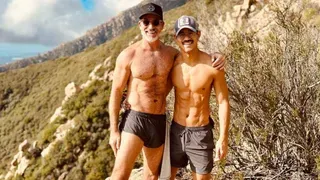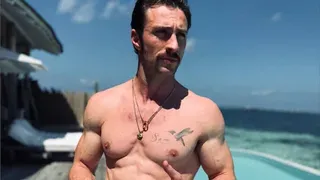September 13, 2024
TIFF Dispatch 3: 'Queer' and 'Emilia Pérez' Disappoint but Other Films Excite
C.J. Prince READ TIME: 8 MIN.

Source: IMDb
Making things worse is Guadagnino's inability to manage tonal shifts from somber drama to heightened surrealist fantasy once the two men head off into the jungle and eventually dabble in hallucinogens. Lee states that part of why he wants to try ayahuasca is due to reading about its telepathic properties, which allows the opportunity to communicate without speaking. It ties back to Guadagnino's overall portrait of Lee, and Burroughs, as a man who can only suffer his way through life, where the pursuit of his passions comes with high risk and exposure. There is, naturally, plenty to mine from here, but Guadagnino isn't the one to do it, nor is screenwriter Justin Kuritzkes (who, based on this and "Challengers," has an allergy to subtext). If the dull, sluggish pacing of "Queer" doesn't make that clear, the embarrassing finale will, with its arduous "2001" inspired moments making me wish that surrealism would put out a restraining order against Guadagnino.
With both films letting me down, I ended up finding highlights elsewhere, and in the spirit of variety I wanted to share a few words on two highlights. The first is Jia Zhangke's "Caught by the Tides," which also premiered at Cannes this year, and for about half of its runtime had me thinking I was witnessing a new masterpiece. Jia has established himself as a top tier auteur since the 2000s with films starring his wife and muse Zhao Tao, including "The World," "Still Life," and "Mountains May Depart" among others. His latest is a bold, radical effort that dates back about two decades. While filming in the 2000s, Jia would shoot different scenes he'd come up with despite having no real purpose for them at the time. These outtakes make up the majority of "Caught by the Tides," where he strings them together through extended montages and a narrative where Zhao plays a woman searching for a man (Li Zhubin) she loves. What Jia and his three editors construct is a downright incredible series of montages that's like watching an epic romance, a documentary, and an essay film on the changing landscape of China in the 21st century all at once. The film's final act, set in 2022 and filmed with both Zhao and Li to tie everything together, operates in a more conventional manner than the awe-inducing material of the first two acts. But it's hard not to be moved when these two characters reappear and reunite decades later, in what feels like a culmination of ideas that Jia has been exploring throughout his filmography.
The other film shares some surprising similarities with "Caught by the Tides," although both films couldn't be more different from each other. Rachel Kempf and Nick Toti's "It Doesn't Get Any Better Than This" also mines footage filmed since the 2000s, only this time it's to construct a slippery hybrid of documentary and found footage horror. Kempf and Toti more or less play slightly different versions of themselves, who live in rural Missouri and buy an abandoned, rundown duplex for a dirt cheap price. They intend to use the space as the primary shooting location for a film they're working on, but the house is covered in satanic symbols, and people keep inexplicably standing outside and staring at the house for hours in a zombified state. In a normal situation, Nick and Rachel would go running right back to their realtor, but the two horror aficionados think they've hit a goldmine so they begin to document everything.
Much of what I described is what really happened. Kemph and Toti moved from Los Angeles to Missouri in 2020 to make films and bought the duplex as a shooting location, then began to document the house once they realized how unsettling it is in its dilapidated state. From that point on, "It Doesn't Get Any Better Than This" becomes more ambiguous in its blending of fact and fiction. While Nick takes on a passive role as the cameraman, both him and Rachel treat the strange goings on as a lark rather than evidence that they're stumbling on to something dangerous. It puts the whole film in an unsettled state, where you're questioning both the reality of every scene and the motivations behind Nick and Rachel's irrational behavior, and it makes every second unpredictable and compelling.
It's also divisive, since the blurred lines and Nick and Rachel's abrasiveness makes "It Doesn't Get Any Better Than This" porous and prickly, especially when their obsession over the house begins to cross certain ethical lines. It may look aimless and slapdash, until Rachel's gay best friend Christian shows up for the two to perform a seance in the house. The seance itself leads to a major shift in the film, where the use of silence and duration makes you realize how much the film's busier setup was a trick. The aftermath of that seance, along with where the story ends up, makes for a tense and unnerving payoff meant to get under one's skin.
(A quick final note regarding "It Doesn't Get Any Better Than This" – the inclusion of real footage of Kempf and Toti and the overall hybrid format has made them decide to never release the film online, meaning it will only be shown theatrically. To make matters more complicated, the screening I attended showed a slightly altered version of the film that wasn't supposed to be shown, however the differences were not significant enough that I couldn't share my thoughts on it.)







